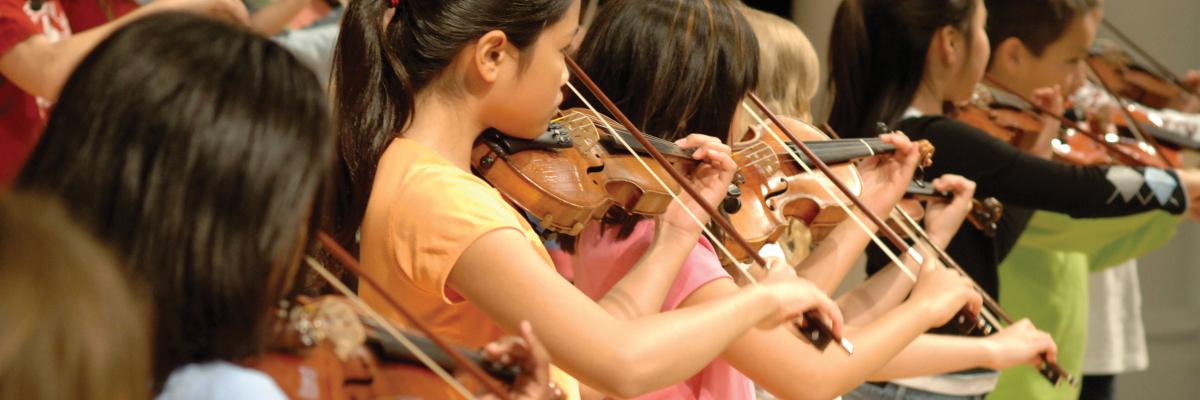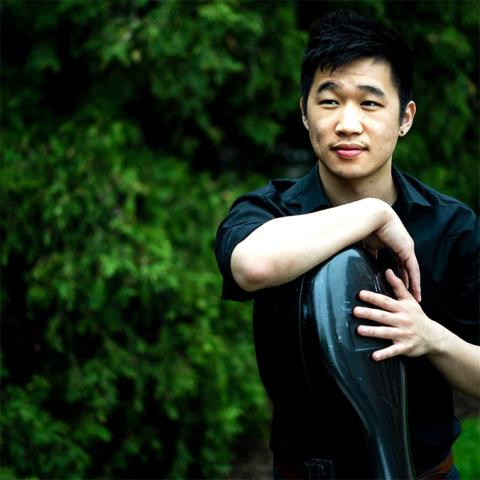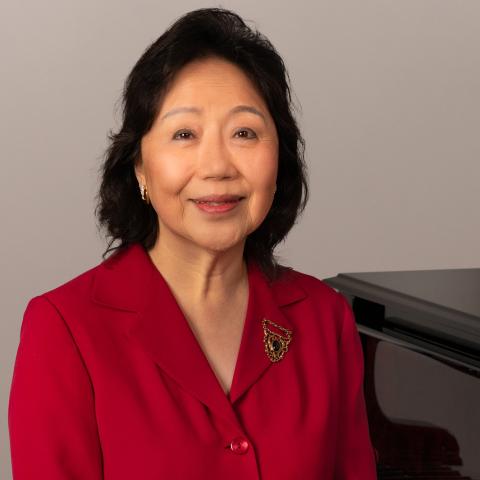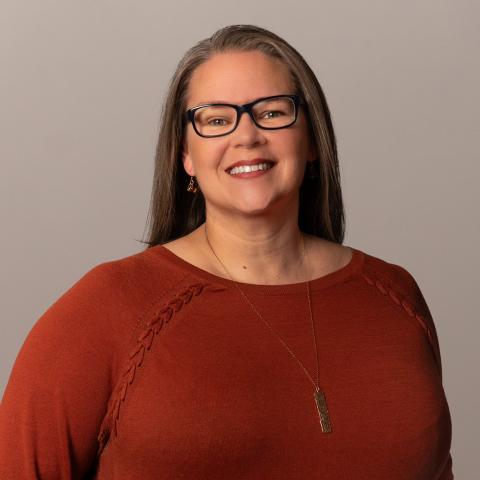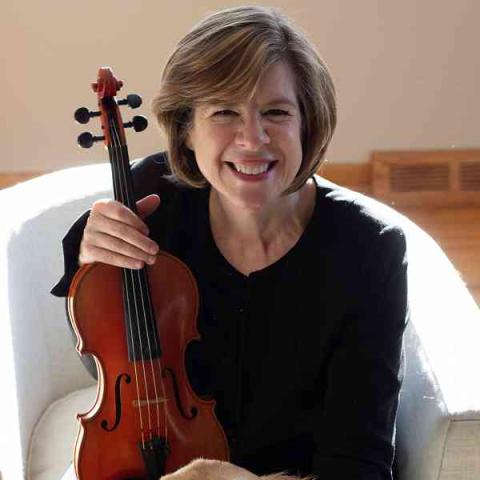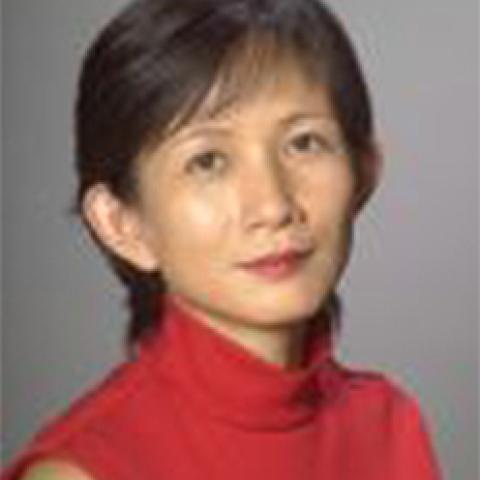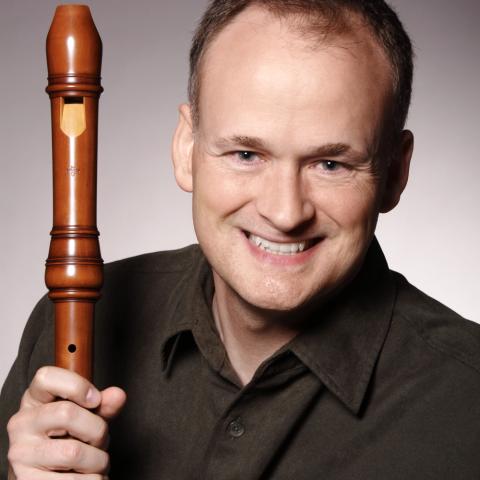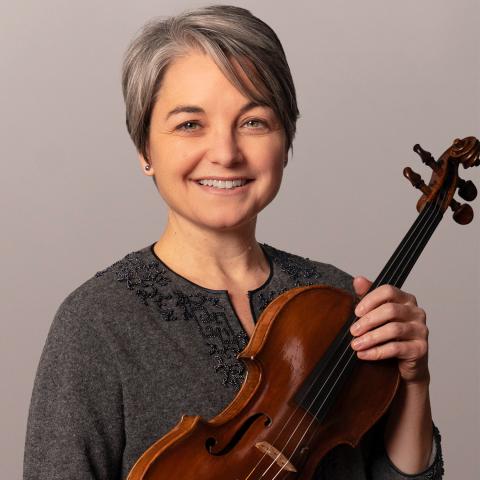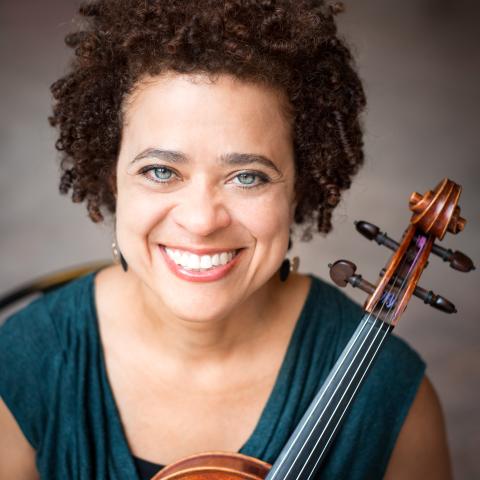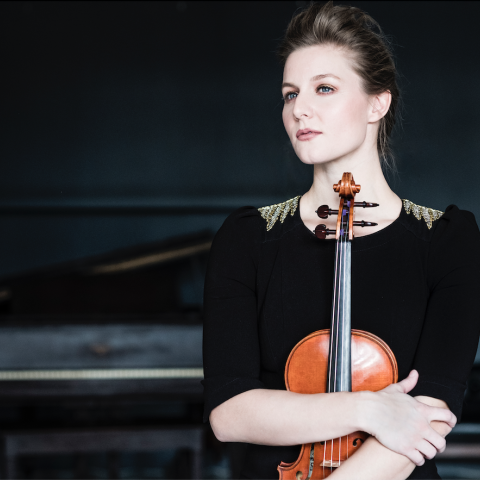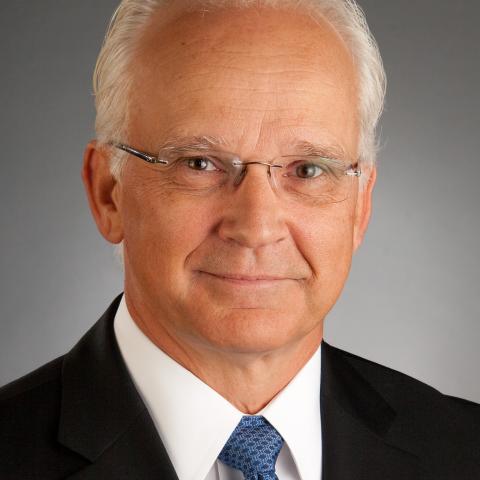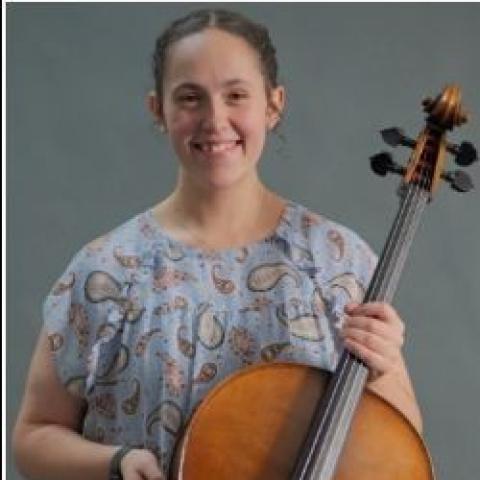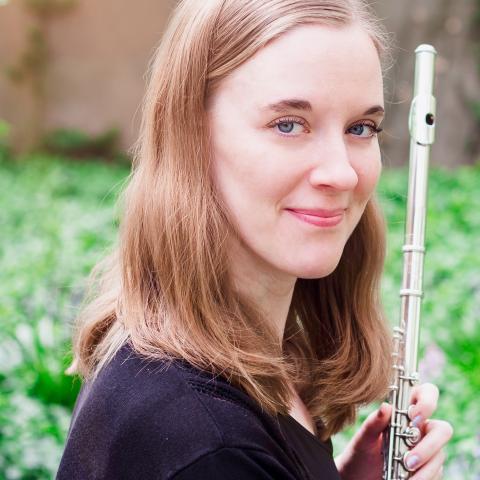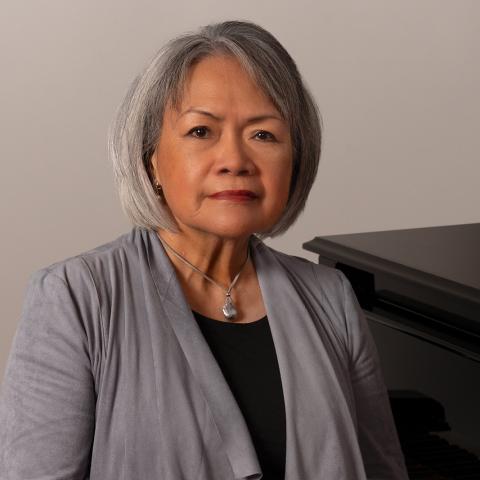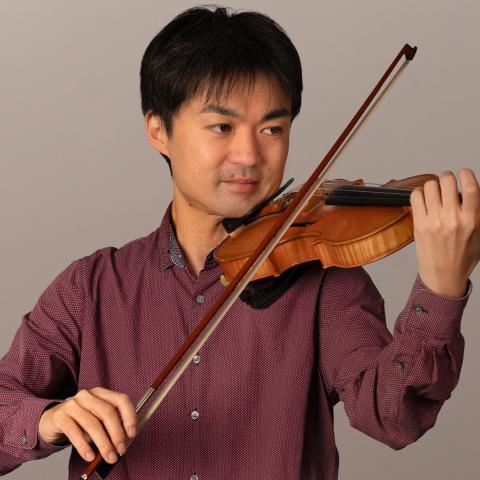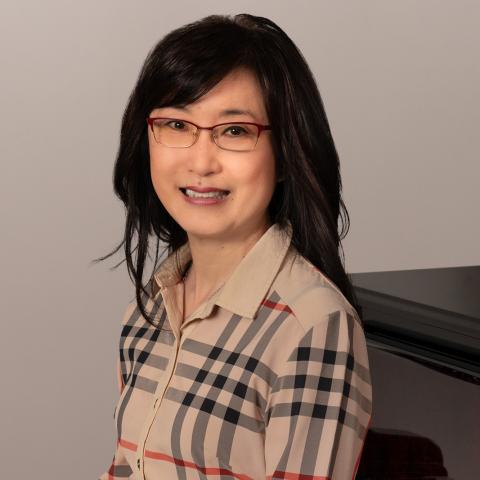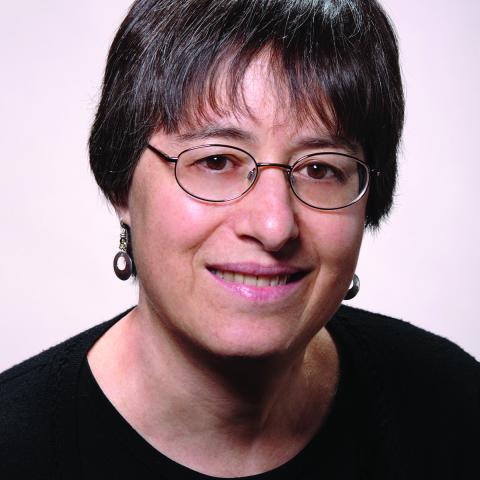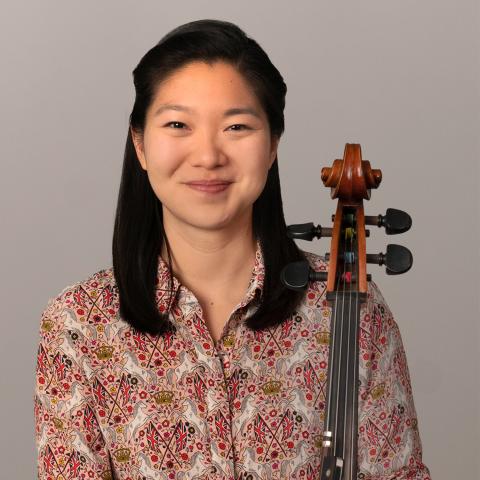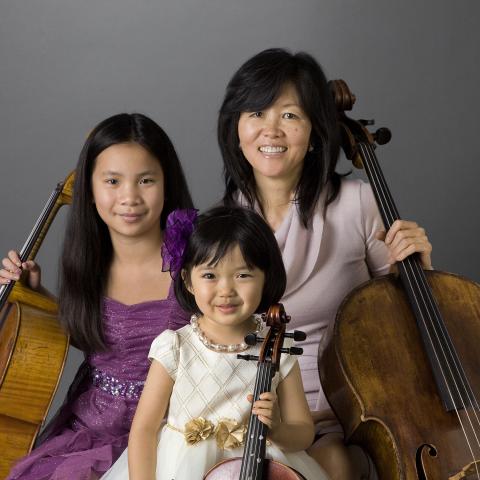Barston Suzuki Center at MIC
MIC’s Barston Suzuki Center offers one of the Midwest's largest and most comprehensive Suzuki programs. The internationally recognized Suzuki method is based on the philosophy of Dr. Shinichi Suzuki that talent and musicianship can be developed in any child.
MIC Suzuki faculty members have taken specialized training endorsed by the Suzuki Association of the Americas and provide the highest quality private and group class instruction. Suzuki instruction is available for piano, violin, viola, cello, bass, flute, guitar, harp, and recorder. Lessons are available in lengths of 30, 45, and 60 minutes. Numerous performance opportunities are offered throughout the year.
What is Suzuki Education?
Dr. Suzuki’s general philosophy intends that the teacher, child, and parents enjoy the learning process.
It was Suzuki’s belief that talent can be developed in any child; while nothing can be done about heredity, much can be done regarding the environment. His method is not just a means of playing an instrument, it is a way of life which will enrich the child in countless ways. Creating professional musicians was not the goal of Shinichi Suzuki. He believed that with the proper environment and educational process and through the medium of music, sensitivity and understanding may be raised in children, creating for each child a better life, and for all, a better world.
Basics About the Suzuki Method
The Suzuki Talent Education Method was pioneered in Japan over 60 years ago by Dr. Shinichi Suzuki. It is based on the philosophy that all children are born with a high potential for learning. If given the opportunity and a proper environment, any child can learn to play a musical instrument.
Using the Suzuki Method, students learn to make music in the same manner in which they learn to speak – by listening and imitating.
Children learn to speak by imitating the language they hear in their daily environment. The mother repeats simple words for her baby and provides encouragement as her child successfully imitates the sounds. Such is the case with music. If the child hears an instrument played beautifully and is encouraged by the parents and teacher in a nurturing environment, s/he will learn to play.
The goals of the Suzuki Method are to enrich the lives of children by playing a musical instrument and to give each child the satisfaction that comes from the ability to do something well.
The Suzuki Program offers much more than music instruction. It encompasses a philosophy of education that applies to many aspects of a child’s development such as discipline, memory, focus, self-esteem and confidence.
The success of the Suzuki Method depends upon the participation of the parent as well as the student.
The Suzuki parent is actively involved in the learning process. The parent attends all lessons, supervises listening, and practices with the student each day, making sure the student does as the teacher instructed. The parent is the “home teacher,” giving praise for each effort, so that practice time is a positive experience. Being a successful Suzuki parent does not depend on any previous knowledge of music. The parent is taught step by step how to help the child at home.
The student listens each day to recordings of the pieces she or he is learning.
In the Suzuki Method, the child begins playing simple pieces prior to learning how to read music. Just as a child learns to speak first and then read, music reading is delayed until the student acquires a level of skill and fluency at the instrument. Until note reading begins, the parent follows the music and teaches the correct fingering (and bowing for stringed instruments) as instructed by the teacher.
Review is an important component of the Suzuki Method.
Students spend part of each practice session reviewing previously learned material. Here they apply new skills and techniques to pieces they already know, hearing for themselves the progress they have made.
Group lessons are an essential part of the Suzuki program.
At the group lesson, students have the pleasure of playing together and for one another. Younger students hear the performances of older students and are inspired to work harder in order to play those pieces. With a spirit of cooperation and enthusiasm, the students and parents encourage each other. It is enjoyable to participate in the social aspect of music from the very beginning.
The use of small sized instruments properly fitted to the child is absolutely necessary, as development of good form and posture is essential.
The teacher aids in selecting instruments and equipment of proper size.
Dr. Suzuki’s general philosophy intends that the teacher, child, and parents enjoy the learning process.
It was Suzuki’s belief that talent can be developed in any child; while nothing can be done about heredity, much can be done regarding the environment. His method is not just a means of playing an instrument, it is a way of life which will enrich the child in countless ways. Creating professional musicians was not the goal of Shinichi Suzuki. He believed that with the proper environment and educational process and through the medium of music, sensitivity and understanding may be raised in children, creating for each child a better life, and for all, a better world.
Suggested Reading for Parents
- Nurtured by Love, Dr. Shinichi Suzuki
- To Learn with Love, Constance and William Starr
- Helping Parents Practice, Edmund Sprunger
- First Class Tips for Suzuki Parents (American Suzuki Journal)
Suzuki Program Overview
- Students ages three and above may be enrolled in the Suzuki Program.
- The parent is actively involved in all aspects of the child’s musical development, attends all lessons and classes, and receives training to be the home teacher
- Parents of beginning students will receive orientation and a parent handbook
- No prior musical experience is necessary.
- The Suzuki program tuition includes the private lesson as well as group classes including the following: Suzuki repertoire classes (corresponding to the instrument for which the student is registered for private instruction in MIC's Suzuki program), Musikgarten® classes (if too young for musicianship; materials fee not included), and Suzuki music reading classes. Students are also encouraged to participate in deeply discounted musicianship classes. Additionally, students may participate in monthly Suzuki Sunday performances, graduation recitals, and Suzuki festival concerts each spring.
Orientation and Observation
Prospective families are encouraged to observe lessons or classes at the Music Institute prior to enrolling in the Suzuki Program. We strongly suggest that parents read Nurtured by Love by Dr. Shinichi Suzuki to understand the fundamentals of Suzuki philosophy before making a commitment to the program.
Suzuki 101: Parent Orientations for New Suzuki Parents
New Suzuki parents must attend one of our “Suzuki 101” Parent Orientations (these classes are for parents only). For more information, contact Sarah Montzka.
Developmental Note-reading Program
The developmental note-reading program at the Music Institute is designed to ensure that the student learns to read music successfully. At early repertoire levels or at pre-school age levels, a pre-musicianship class is available. Later, in music reading classes, students learn and master a step-by-step progression of note-reading skills. As the child progresses, reading techniques are used in mixed groups where the children play their instruments in elementary ensembles.

